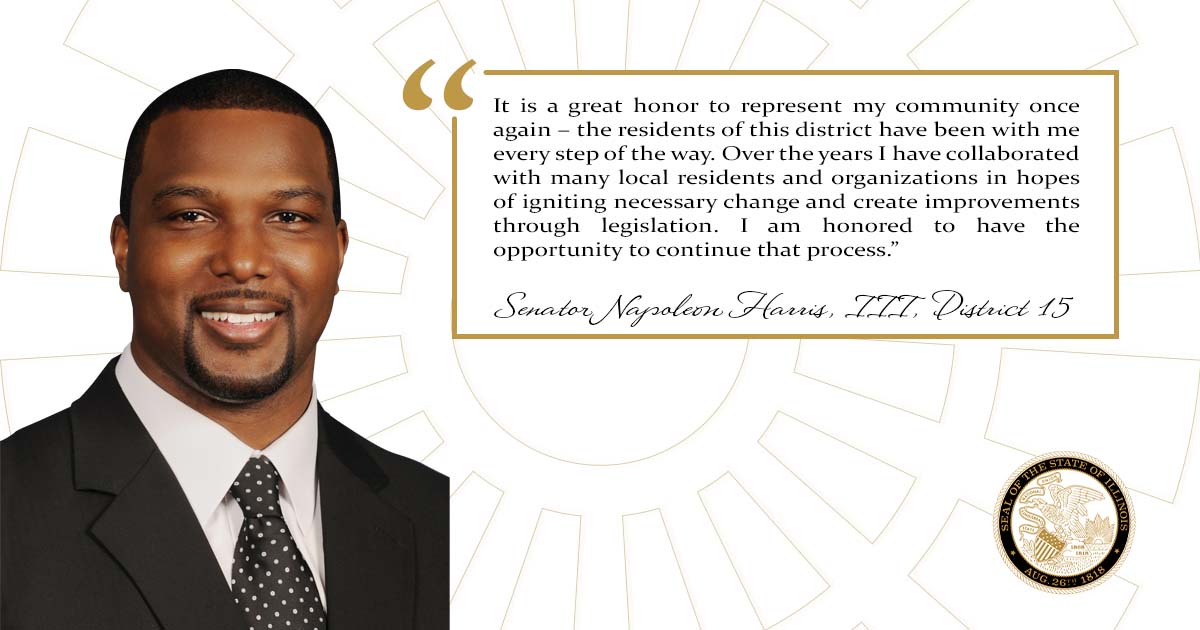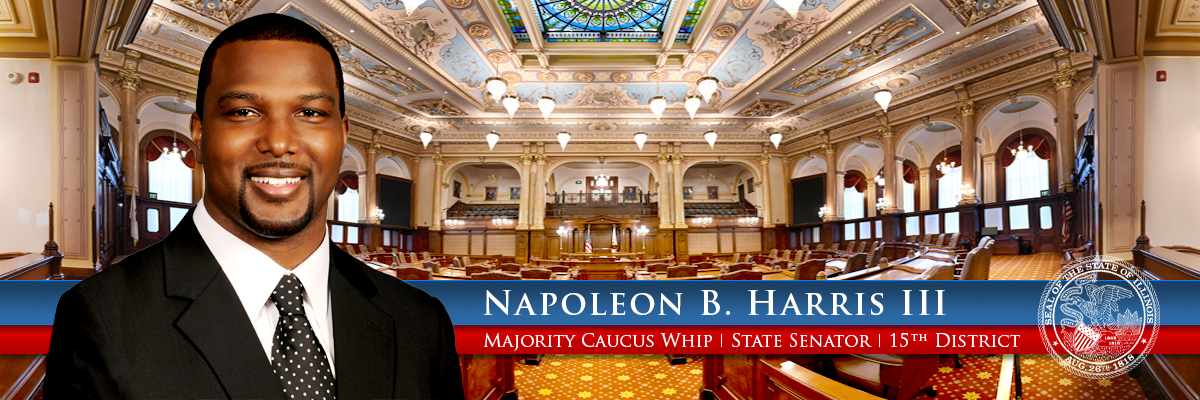Harris hopeful by workforce development investments in proposed budget
- Details
- Category: News

SPRINGFIELD – State Senator Napoleon Harris (D-Harvey) released the following statement after hearing the governor’s proposal for the Fiscal Year 2024 budget:
“Illinois has worked diligently for years to revitalize our communities – which includes welcoming businesses from other states that will in turn spur job creation and economic growth. Investing in small businesses uplifts entrepreneurs and funnels funding back into our communities.”
“Ensuring that equitable opportunities are in place for minority owned businesses is necessary for the revitalization of underserved communities. As a small business owner I understand the significant value we add to society by being a local resource to our neighboring residents and how difficult it can be to recover from the residual effects of the pandemic. These proposals will not only increase employment, but will enable us to further support and build the backbone of our economy.”
“I am hopeful with the job creation and workforce development plans outlined by the governor, and look forward to ongoing negotiations in the months to come.”
Harris announces funding for lead service line replacement
- Details
- Category: News
 HARVEY – The Illinois EPA announced more than $125,000 is heading to Dolton, Markham, and Posen to assist the cities in identifying service lines that may contain lead.
HARVEY – The Illinois EPA announced more than $125,000 is heading to Dolton, Markham, and Posen to assist the cities in identifying service lines that may contain lead.
“Lead levels have been a pervasive issue in our communities and its risk impends upon the wellbeing of children and families,” said Harris (D-Harvey). “Investing in our service lines will enhance drinking water and provide a better quality of life for many.”
Senator Harris voted for the legislation creating the Lead Service Line Replacement Notification Act in 2021. The Lead Service Line Replacement Notification Act establishes timelines and requirements for the removal and replacement of all lead service lines in Illinois and creates a low-income water assistance program to help fund financial assistance and water projects that include lead pipe replacement.
Illinois has more lead service lines than any other state in the nation, with an estimated 730,000 to 1.4 million lead service lines in the ground. There is no safe level of exposure to lead.
“This funding will provide many communities with the necessary funding to develop a complete inventory identifying the types of water lines that exist in their drinking water supplies,” said Illinois EPA Director John Kim.
To see a full list of Lead Service Line Inventory (LSLI) Grants, click here.
Harris marks ten years serving in General Assembly
- Details
- Category: Press Releases

SPRINGFIELD – State Senator Napoleon Harris was inaugurated Wednesday for his 10th year in the Senate.
“It is a great honor to represent my community once again – the residents of this district have been with me every step of the way,” said Harris (D-Harvey). “Over the years I have collaborated with many local residents and organizations in hopes of igniting necessary change and create improvements through legislation. I am honored to have the opportunity to continue that process.”
Senator Harris has held his position as State Senator representing the 15th District since 2013. He has championed several bills just this past year including measures surrounding health care, improving home health services, as well as implementing the Domestic Violence Task Force. During the course of ten years, he has championed over 70 bills.
“I am extremely proud of the work we have done as a collective,” said Harris. “It is a significant task and responsibility to represent and amplify the voices that shape our community – and I accept that responsibility whole heartedly.”
Harris will serve another term as Majority Caucus Whip- a position he has held since 2020. Harris will continue to work with caucus members on policy issues and help advise them on legislative priorities.
People of the 15th District can contact Harris’s office for assistance with state and local resources at (708) 893-0552 or www.senatornapoleonharris.com.
Harris brings equity to his childhood street
- Details
- Category: Press Releases
HARVEY – State Senator Napoleon Harris III is proud to announce the rehabilitation of Wood Street in the South Suburbs through the state’s multi-year infrastructure plan.
“It is a bittersweet feeling to be one of the reasons why a street I grew up on is going to be restored,” said Harris (D-Harvey). “I lived right on Wood Street, and I am proud to see that our infrastructure plan is rebuilding communities and creating an equitable transportation system for all.”
More Articles …
Page 14 of 67






